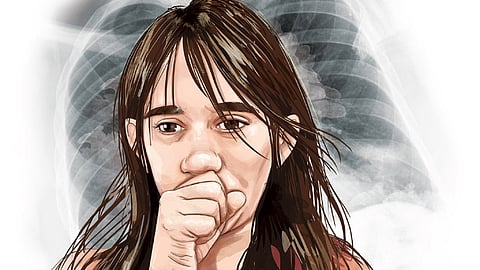

THIRUVANANTHAPURAM: The state health department has mapped 81.6 lakh individuals at high risk of tuberculosis (TB) as it plans pro-active measures for early detection and treatment, as part of its aim to eliminate the disease.
These individuals were surveyed from 18 vulnerable groups, including people with uncontrolled diabetes, kidney ailments, past or familial history of TB, and those living in overcrowded, socio-economically disadvantaged areas, such as tribal and coastal regions.
Despite a decline in overall TB cases, the disease remains a leading cause of death in the state. According to the Global Tuberculosis Report 2024, Kerala records six TB-related deaths every day — adding up to 2,123 fatalities annually.
The state has intensified efforts for early detection of the disease. In 2023, over 21,500 new cases were identified by screening 5.44 lakh people. A recent 100-day campaign by the State TB Cell screened 53 lakh people and detected 5,588 cases. Health experts stress that detecting TB before symptoms appear is crucial to cutting transmission and reducing the disease burden.
“A patient with pulmonary TB becomes infectious once symptoms appear, particularly coughing. Unfortunately, many self-medicate or ignore symptoms, which facilitates spread. Men are more susceptible, but less likely to attend screening camps, partly due to the stigma surrounding the disease,” said Dr Aparna Mohan, WHO consultant. She warns that one symptomatic TB patient can infect up to 15 others a year.
AI X-ray units
In a decisive step aimed at eliminating the disease, the State TB Cell is set to deploy artificial intelligence (AI)-enabled hand-held X-ray units to screen vulnerable groups. These portable, battery-operated devices provide high-resolution imaging with low-dose radiation (6mA) and can be easily set up at local health centres, halls, or community settings — removing logistical barriers for hard-to-reach groups. “The Central TB Division will provide two hand-held X-ray units to each district, and additional devices are being procured using CSR funds,” said state TB officer Dr K K Rajaram.
Annual chest X-rays will be offered free of cost, especially targeting coastal communities whose work patterns often prevent them from attending regular camps. “With portable X-ray machines, we can reach them on their own terms,” Dr Aparna added.
If the AI analysis flags an abnormality, patients will undergo confirmatory molecular tests such as CBNAAT and TrueNAT. Those testing positive will be administered immediate treatment, in line with national guidelines. If a person is TB negative she or he may be referred to a physician to determine other cause of lung abnormality.
According to the National TB Prevalence Survey, nearly 43% of cases would be missed without chest X-ray screening--underscoring the critical role of imaging in disease detection.